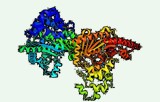
Ensaio de atividade da creatina quinase
A dosagem da atividade da creatina quinase é uma ferramenta diagnóstica vital utilizada para medir a atividade enzimática da creatina quinase, uma enzima encontrada principalmente no coração, cérebro e músculos esqueléticos. Este ensaio é crucial para avaliar o dano muscular, pois níveis elevados de creatina quinase são frequentemente indicativos de condições como infarto do miocárdio, rabdomiólise e outros distúrbios musculares.
O ensaio geralmente emprega um método colorimétrico no qual o fosfato de creatina e o adenosina difosfato (ADP) são convertidos em creatina e adenosina trifosfato (ATP) pela creatina quinase. O ATP gerado é então utilizado em uma reação acoplada com hexocinase para fosforilar a glicose, produzindo glicose-6-fosfato, que é subsequentemente oxidada pela glicose-6-fosfato desidrogenase. Esse processo gera NADPH, mensurável a 340 nm, cuja intensidade é diretamente proporcional à atividade da creatina quinase na amostra. O ensaio é versátil e aplicável a vários tipos de amostras, incluindo soro e plasma, tornando-o adequado tanto para diagnóstico clínico quanto para aplicações em pesquisa. Com sua alta sensibilidade e a capacidade de ser automatizado para análises de alto rendimento, o ensaio de atividade da creatina quinase desempenha um papel importante no monitoramento da saúde muscular e na avaliação dos efeitos das intervenções terapêuticas em doenças metabólicas.
Resultado da sua pesquisa : 2 produto encontrado
Refine sua procura :
- kit 2

